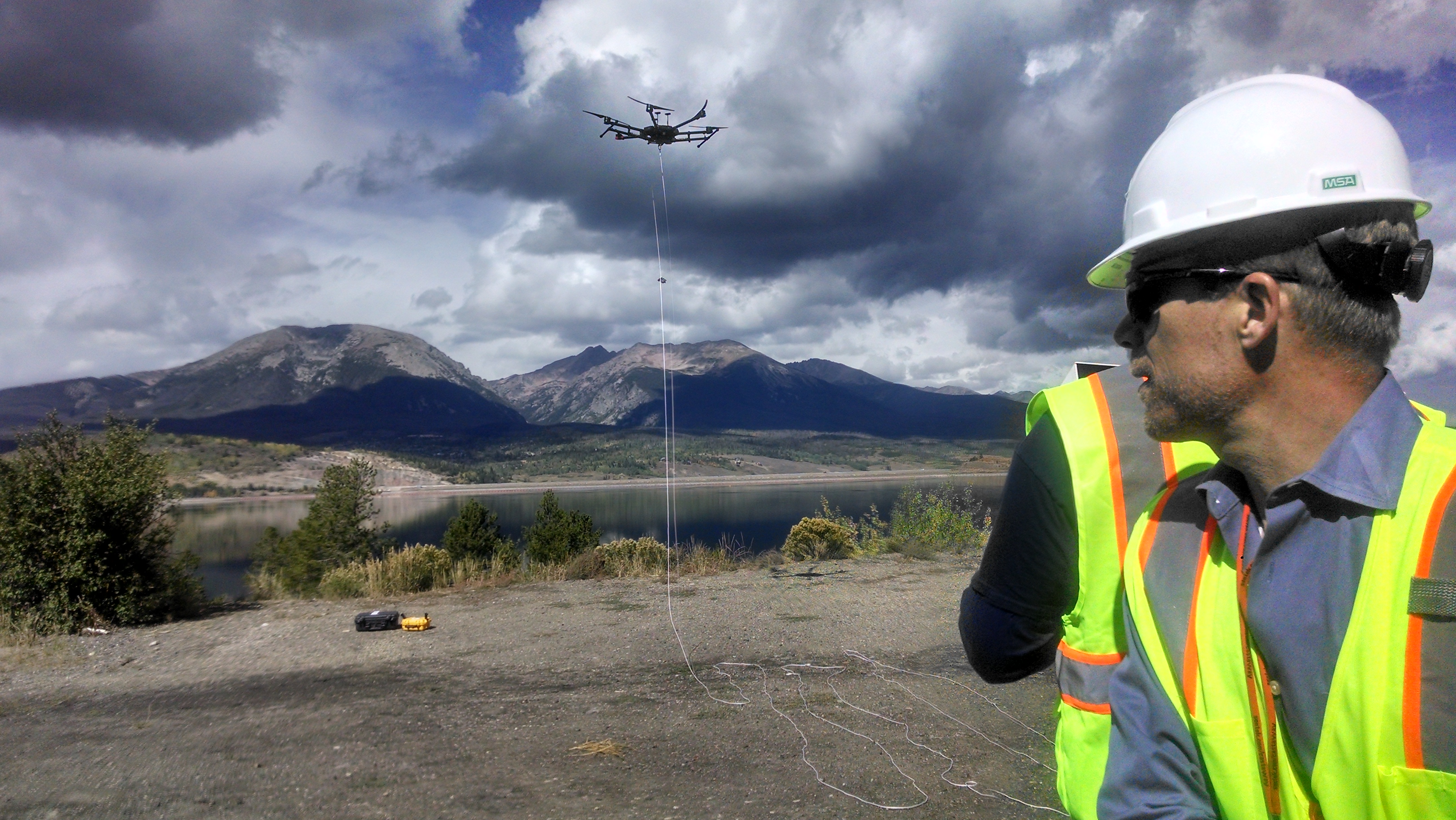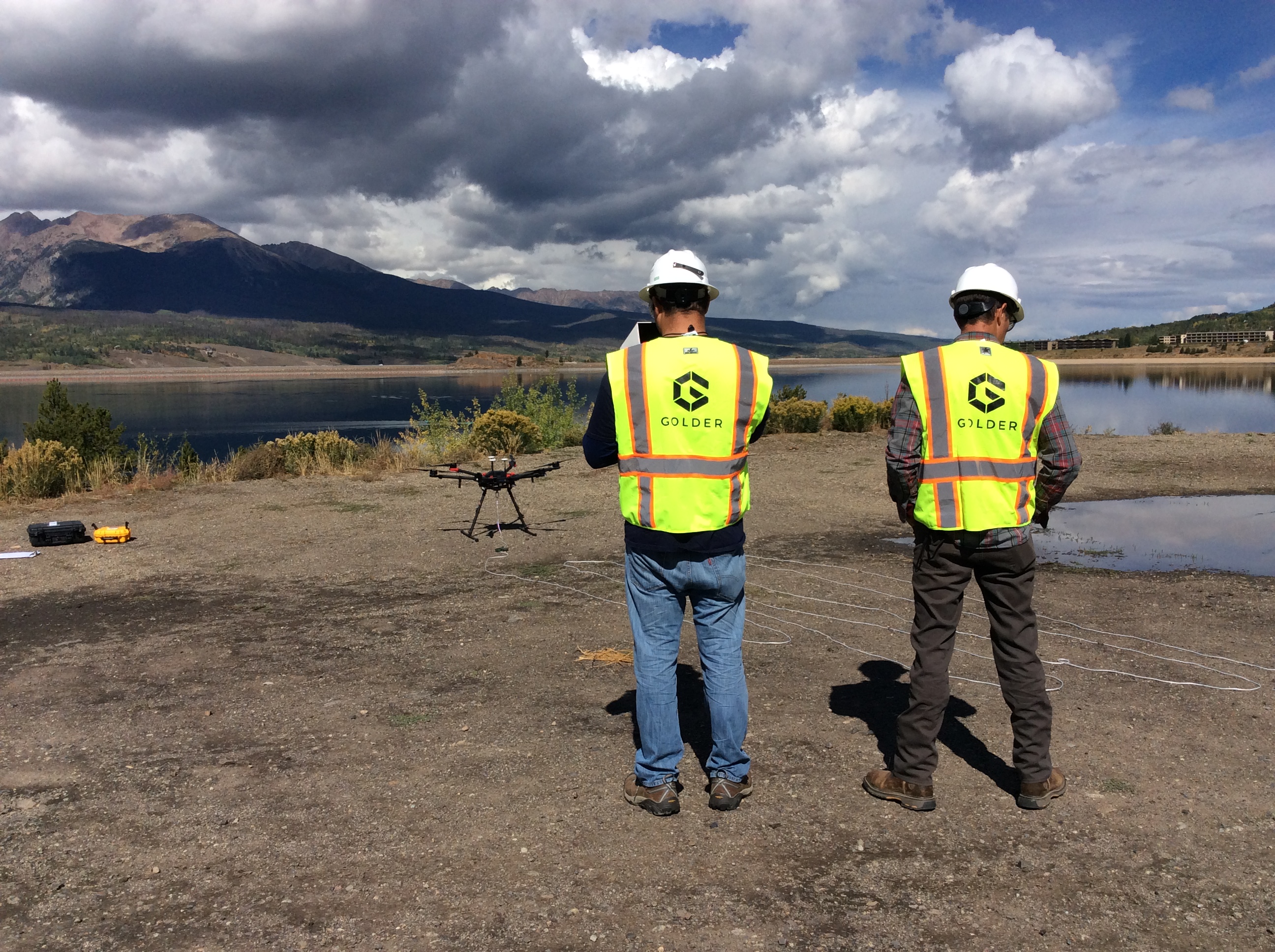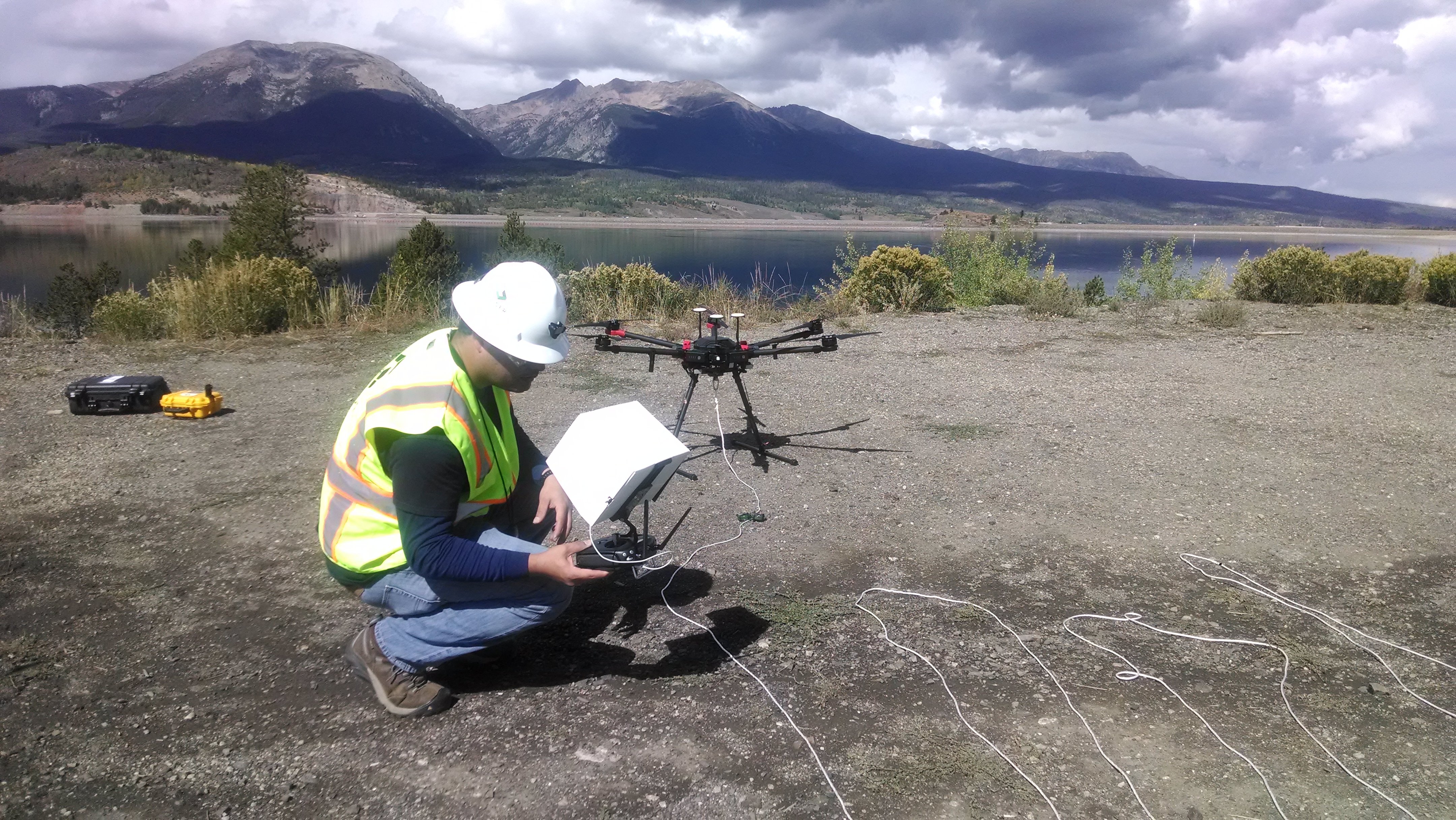
Water sampling takes flight at Dillon
On a sunny, September day in Summit County, Brandon Ransom, Denver Water’s recreation manager, stood sentinel in a boat on Dillon Reservoir, keeping a watchful eye out for kayakers and stand-up paddle boarders.
But his focus wasn’t on the recreators — it was hundreds of feet above the water’s surface.
He was carefully watching a team from Golder Associates Inc. successfully test flying a drone, officially called an unmanned aerial vehicle, on a mission to collect water samples from the reservoir.
Onshore, the team from Golder monitored the flight path while Brian Straight, who also is a doctoral engineering student at the University of Colorado, carefully navigated the drone out over the surface of the water.
With a flick of the controls, the drone hovered, then slowly descended closer to the water, dropping the water collection device more than 100 feet into the water to collect a sample. Then, following signals from Straight, who is certified by the U.S. Federal Aviation Administration to fly a drone, the machine gradually rose a few hundred feet in the air and slowly flew back to shore — with the collection device dangling underneath.
The test flights are the result of a partnership between Denver Water and Golder, a global consulting, design and construction services company based in Canada with an office in Lakewood.
It’s based on an idea that Straight first broached to Ransom several months ago.
For the protection of critical infrastructure and reservoirs, Denver Water prohibits the unauthorized use of drones on or around any of its facilities, and it can lead to the device being confiscated and trespassing charges being filed.
But, Denver Water also is always on the lookout for new techniques and innovations that could improve safety and operations in the most sustainable and fiscally responsible way possible. Our partners at the Summit County Sheriff’s Office earlier this year acquired an underwater drone to look for items in the reservoir, reducing the need to send human divers into the frigid waters.
“Denver Water routinely goes out in a boat and takes water samples for testing, but the drone could offer another way to do that — and one that may be better suited for collecting samples from places, such as high alpine lakes, that are difficult to get a boat to,” Ransom said. “While there are no current plans in the works to begin collecting our water quality samples with a drone, this is a great opportunity for Denver Water to learn more about its feasibility.”
Dillon Reservoir, which is 280 feet deep, offers a unique opportunity for testing water collection techniques via drone in Colorado because of its extreme depth.
Devin Castendyk, a senior geochemist with Golder, explained that Golder works with clients in the mining industry that need to test water in pits left behind by old mining operations that have gradually filled with water over the years. The shoreline of these kind of locations can be rocky and treacherous for people and difficult to get boats to, but are places that a drone can access more easily, safely and quickly.
“This drone is designed to avoid risk, and Brandon Ransom and Denver Water have been incredibly generous with time and resources to help us test and improve its operation,” Castendyk said. “As drones have come down in price and become able to carrier heavier equipment, their uses are expanding.”



